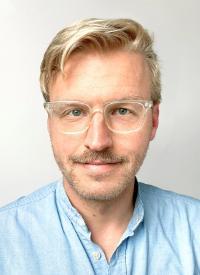
Peer-to-Peer Workshop Series: Generative AI for Environmental and Social Sustainability?
Why did you take part in the Peer-to-Peer programme?
Ted: Through the P2P workshop programme, I was able to receive targeted professional development, through one-to-one mentorship provided by the programme, which pushed me to consider how best to approach the topic of the use of generative AI in higher education. The P2P workshop programme also provides a salaried wage, which is really instrumental in supporting PGRs in an increasingly precarious studying and working environment. It is also a unique opportunity to gain skills that can be applied both to the PhD and to the world beyond, as I plan to continue to develop and host workshops of a similar nature.
What inspired you to run 'Generative AI for Environmental and Social Sustainability?' and what did you hope to achieve?
Ted: The goal of the workshop was to provide a counterpoint to more traditional trainings and workshops on generative artificial intelligence in higher education, which focus almost exclusively on issues of academic integrity and responsible use of generative AI. This is short-sighted (and instrumental), and as the workshop was taking place at the School of Social and Environmental Sustainability, within the College of Social Sciences, I believe more critical interrogation of what generative AI does, and the kinds of working conditions it requires, was essential, so I wanted to create a workshop that allowed for this critical interrogation. The main points of the workshop included an overview on how large language models work, the environmental impacts of data centres, and the labour implications not just of model refinement but also the labour implications specific to intellectual labour in higher education.
Take us through the process of setting up and running your workshops.
Ted: With the support of Dr. Michaela Hruskova, my colleague (Maria Izzo) and I set up a workshop that included both an informational lecture that I delivered and an interactive discussion-based section that allowed small groups to talk through the implications of this technology in our (working) worlds. The mentorship session with Dr. Hruskova was instrumental in helping us centre the content, while scaling back some of the complexity to allow for more open-ended discussions. The School of Social and Environmental Sustainability provided the room for the workshop, in addition to the supplies. The first part of the lecture included an opening story to get participants to reflect on their experiences; we then did an ice-breaker activity such that participants could better get to know each other in the context of their thinking and working in HE, with or without the use of generative AI. We then conducted a quick knowledge survey to get insight on participants’ prior knowledge, which we also did at the end. A lecture on how large language models work was the next item, followed by a discussion of the environmental, social, and labour implications of the technology. We then concluded with a discussion on what the future might hold, and how we might want to shape that future.
What lessons did you learn through hosting 'Generative AI for Environmental and Social Sustainability?'?
Ted: Ultimately, the biggest takeaway was that students within CoSS and beyond need the opportunity to engage in evidence-based discussions around the implications of technologies (and work practices) on our own careers and the sector more broadly. Many participants were grateful for the mere opportunity to have space for critical discussion (which wasn’t simply about academic integrity or “responsible” use, however that is defined); there are, indeed, other critical poses that we might want to adopt (including resistance, refusal, but above all pushing for more sustainable and equitable futures for all). The very fact of allowing for critical spaces of discussion was essential to the success of the workshop, and this received the most positive feedback from participants.
Equally, it is important to keep ambitions realistic. A 90-minute workshop cannot cover that much content, and too much time spent on disseminating information, versus allowing participants to engage in discussion, is a risk. In the end, we had to slightly scale back our own workshop ambitions, but this left the possibility for future engagements.
If a fellow student was considering taking part in the Peer-to-Peer programme, what would you tell them?
Ted: If you have even a small idea for a workshop, something that sparks your own interest, the P2P workshop is a great opportunity to get structured support to develop that idea (via built-in mentorship sessions) while also getting compensated for your labour. As there is so much free labour built into academia, the fact that the CoSS offers the P2P workshop programme is a rare gem that allows professional development opportunities to be distributed more equitably. The idea can be related to your PhD or tangential, allowing you to explore an interest that might lead to something big in the future.
Allowing for critical spaces of discussion was essential to the success of the workshop - Ted Palenski
PGR Student Profile

Name: Ted Palenski
Research Interests: Critical perspectives on technology in education; ethics of care; ethropgraphic and participatory methods
'I am based at the School of Social and Environmental Sustainability in Dumfries, and what is special about the campus location is the rural setting: the Crichton estate is set amidst the rolling hills of Dumfries and Galloway, allowing for a closer connection with the natural world.'

